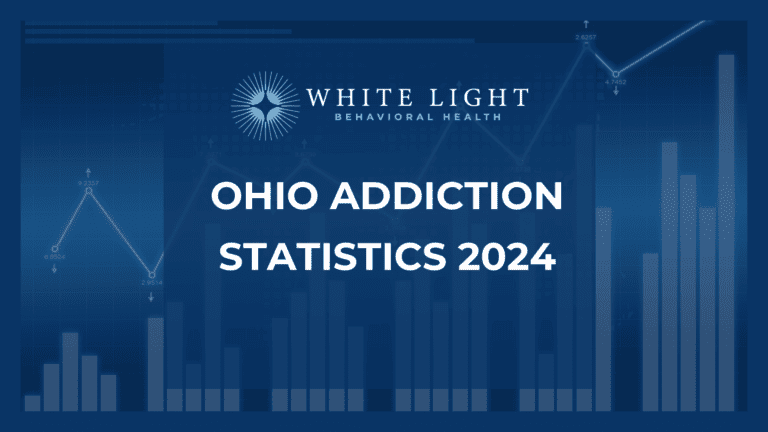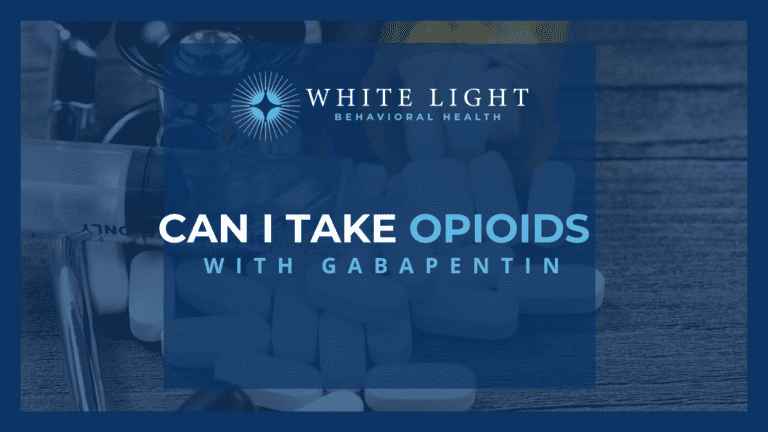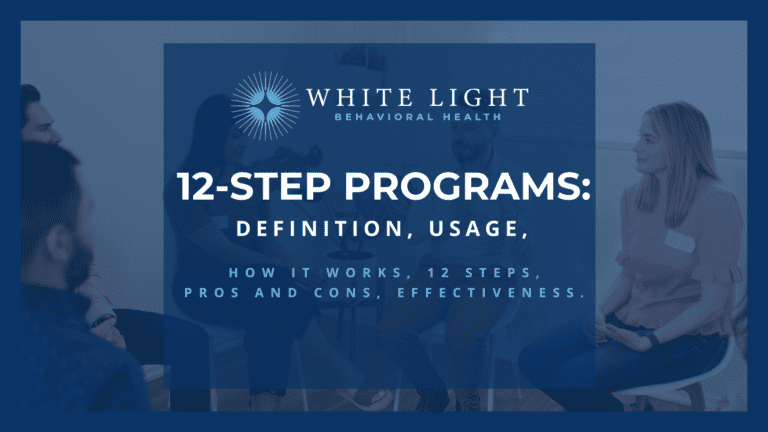People have a dual diagnosis when they have a substance use disorder and a mental health disorder that are both active at the same time. For example, you may feel depressed after you have engaged in binge drinking, or the symptoms of bipolar disorder may become more severe after you engage in using heroin. According to the article “Comorbidity: Substance Use and Other Mental Disorders” published by the National Institute of Drug Abuse, 7.7 million adults have both a mental health disorder and a substance use disorder.


It is difficult for medical professionals to determine which disorder developed first. In many cases, people will begin to experience symptoms of a mental health disorder. Rather than visit a medical professional, they decide to medicate themselves with substances or alcohol. Instead of improving the situation, substances usually make it much worse.
The use of substances may also be the reason that people begin to experience a mental health disorder. According to the NIH from the same article, of the 20.3 million adults diagnosed with substance use disorders, 37.9% were also diagnosed with mental health disorders. In contrast, 42.1 million adults have a mental health disorder, and 18.2% of this population also have a substance use disorder.
What Is Dual Diagnosis Treatment?
Dual diagnosis refers to the co-occurrence of substance abuse disorders and mental disorders, a common scenario for many individuals struggling with addiction. Treating these intertwined issues requires a nuanced approach that can address the complexities of each diagnosis. White Light Behavioral Health’s dual diagnosis program is tailored to meet these challenges, providing clients with comprehensive care that addresses their unique needs.

What Are Common Co-Occurring Disorders?
- Depression: Individuals suffering from depression may turn to drugs or alcohol as a form of self-medication, seeking temporary relief from their symptoms.
- Anxiety Disorders: This can include generalized anxiety disorder (GAD), panic disorder, and social anxiety disorder, where substance use is often a coping mechanism for overwhelming anxiety.
- Post-Traumatic Stress Disorder (PTSD): Trauma survivors may use substances to numb their pain or to cope with flashbacks and nightmares, which can lead to dependency.
- Bipolar Disorder: Characterized by extreme mood swings, individuals with bipolar disorder may use substances during manic or depressive episodes as a way to self-soothe or enhance their mood.
- Attention Deficit Hyperactivity Disorder (ADHD): People with ADHD may misuse substances as a way to manage their symptoms, which can lead to addiction.
- Eating Disorders: Eating disorders, such as anorexia nervosa, bulimia nervosa, and binge-eating disorder, often co-occur with substance abuse, with individuals using substances to control weight or cope with emotional distress.
Co-occurring disorders refer to the simultaneous presence of a mental health disorder and a substance use disorder. Understanding these conditions is crucial in addressing the complexities of dual diagnosis treatment. At White Light Behavioral Health, we encounter a wide range of co-occurring disorders, each requiring a tailored approach to treatment. Some of the most common co-occurring disorders include:
Dual Diagnosis Treatment Options in Columbus, Ohio
- Residential or Inpatient Treatment: Offers a comprehensive approach for those without stable living conditions, starting with medication-assisted treatment (MAT) to alleviate withdrawal symptoms and manage cravings, employing medications like acamprosate and lofexidine.
-
Intensive Outpatient Treatment (IOP): For those with stable living environments, IOP allows clients to stay at home while attending 9-20 hours of treatment weekly, lasting from two months to a year.
-
Outpatient Treatment Programs: Less restrictive than IOP, these programs fit those maintaining jobs or school, with sessions available during evenings or weekends.
-
Partial Hospitalization Program (PHP): Our PHP offers a structured treatment environment while allowing clients the flexibility to engage in daily life activities or return to our supportive housing if they lack a safe living environment or are from out of state.
-
Supportive Housing Environment: For clients who do not have a safe place to stay or those coming from out of state, we provide supportive housing to create a stable and supportive environment conducive to recovery.
- Rational Emotive Behavior Therapy (REBT): Focuses on recognizing and overcoming negative thoughts, fostering a belief in one’s ability to think and act rationally.
- Cognitive Behavioral Therapy (CBT): Aims to identify problematic behaviors, understand triggers, and develop coping mechanisms, making it highly effective for a range of addictions.
-
Dialectical Behavior Therapy (DBT): DBT helps clients develop skills in mindfulness, emotion regulation, distress tolerance, and interpersonal effectiveness, crucial for managing mental health issues alongside substance abuse.
-
Motivational Interviewing: This technique encourages clients to find their motivation for change, enhancing their commitment to the recovery process.
-
Eye Movement Desensitization and Reprocessing (EMDR): EMDR is effective for treating trauma-related issues, helping clients process and heal from traumatic memories that may contribute to their substance use and mental health disorders.
-
Trauma-Focused Therapy: This approach addresses the specific mental health needs of clients with trauma histories, providing them with strategies to cope with and recover from trauma.
Therapies Offered For Dual Diagnosis Treatment
- Medication Management: Carefully monitored by our medical team, medication management is crucial for treating underlying mental health conditions while managing withdrawal symptoms.Exercitation ullamco laboris nisi ut aliquip ex ea commodo consequat.
- Therapy and Counseling: Individual and group therapy sessions provide a space for clients to explore the root causes of their addiction, develop coping strategies, and build a supportive community.Esse cillum dolore eu fugiat nulla pariatur.
- Holistic Therapies: Complementary therapies, including mindfulness, yoga, and art therapy, are incorporated to support overall well-being and recovery.
Integrated Care Model

The Importance of Treating Dual Diagnosis
While dual diagnosis treatment can significantly improve quality of life and promote lasting recovery, it’s important to understand that treatment is not a cure for co-occurring disorders. Adherence to treatment plans is crucial for managing symptoms and maintaining sobriety. It’s also essential to acknowledge that relapse is a part of the recovery journey for many individuals. However, with continuous support and by leveraging the tools learned in treatment, clients can navigate these challenges and move toward a healthier future.
At White Light Behavioral Health, we’re dedicated to providing a comprehensive, compassionate approach to dual diagnosis treatment, empowering our clients to achieve lasting recovery and wellness.
Begin Your Dual Diagnosis Recovery Journey at White Light In Columbus, Ohio
Frequently Asked Questions About Dual Diagnosis Treatment
What conditions are treated in the Dual Diagnosis program?
Our Dual Diagnosis Treatment program addresses a wide range of mental health conditions alongside substance abuse, including but not limited to depression, anxiety disorders, bipolar disorder, PTSD, and more.
How long does the Dual Diagnosis Treatment program last?
The duration of treatment varies depending on the individual’s specific needs and progress. Our team continuously assesses each client’s recovery journey to ensure the treatment plan remains appropriate for their stage of recovery.
Is family involvement part of the treatment process?
Yes, recognizing the vital role families play in the recovery process, we offer family weekends that combine visitation with educational programs. These weekends are designed to educate families about dual diagnosis, the challenges of recovery, and how they can support their loved ones.
Does insurance cover Dual Diagnosis Treatment?
White Light Behavioral Health works with most major insurance providers. Our admissions team can assist with insurance verification and exploring coverage options to ensure you can access the care you need.
Is Treatment a Cure For Co-Occurring Disorders?
Treatment for substance use disorder is not a cure for this condition. It is known as a relapsing disease, so it is possible that you could return to using your substance of choice after treatment ends. Some people have returned to substance use after several years have passed since their last drug use. Because substance use disorder is a relapsing disease, you may need to continue treatment for an extended period of time.
Continued treatment will help you keep from relapsing after you return to your old life. You may feel comfortable returning home after your treatment ends, but if not, you have options that will offer you more support. For example, a sober living home is a place that welcomes people from residential treatment centers, and you can remain there for as long as one year. In addition to that, these homes provide you with counseling services to ensure your sobriety.
If you are feeling hopeless because of your substance use, you can find help today. Contact White Light Behavioral Health, and we will brighten your path toward a wonderful future.



